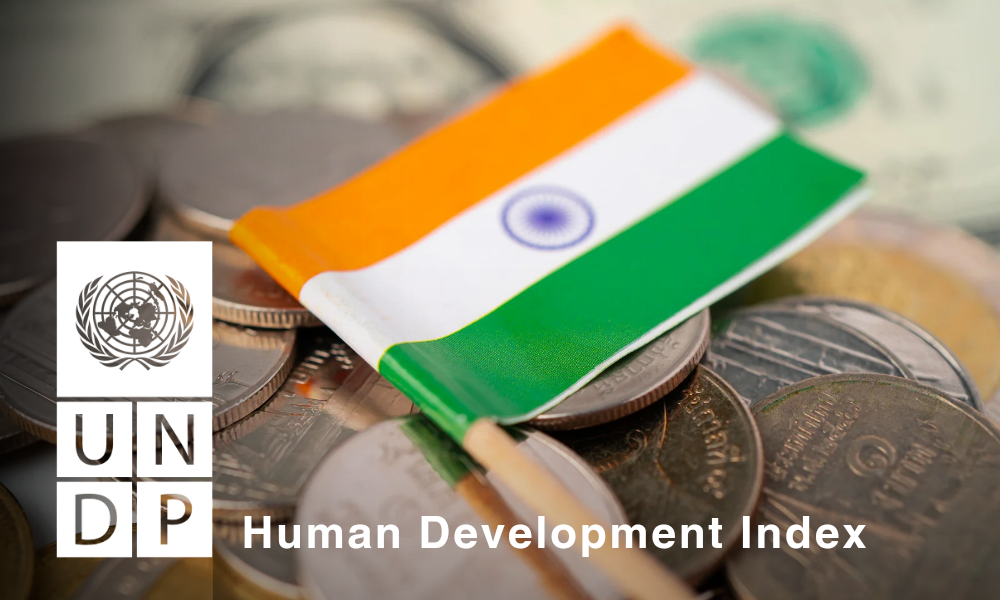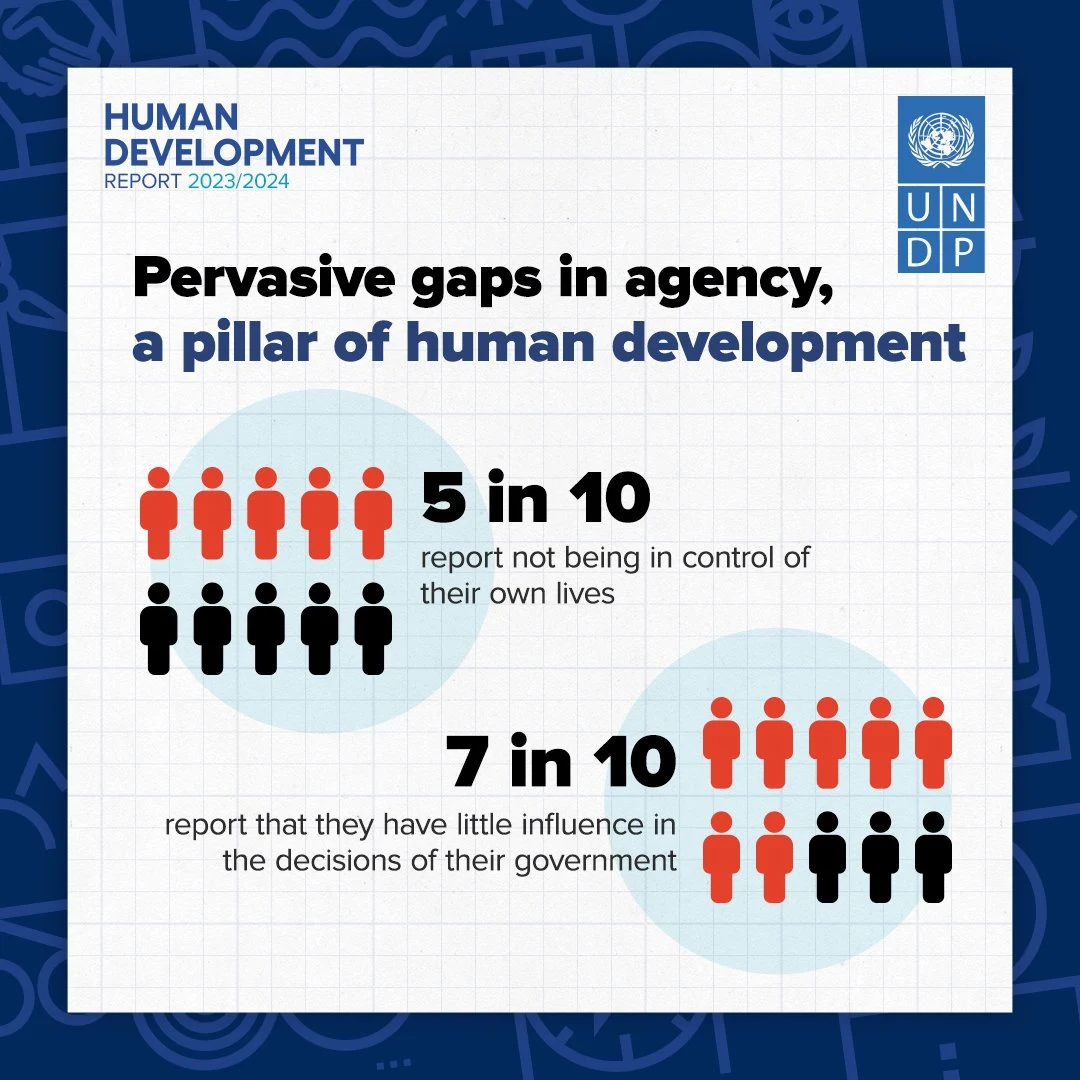
On the Gender Inequality Index (GII) 2022, India has been ranked at 108 out of 193 countries with a score of 0.437. Its rank was 122 out of 191 countries with a score of 0.490 in the GII-2021
This shows a significant jump of 14 ranks on the GII-2022 vis-a-vis the GII-2021, the women and child development ministry said However, the country also has one of the largest gender gaps in its labour force participation rate a 47.8% difference between women (28.3%) and men (76.1%).
Between 1990 and 2022, India's HDI value changed from 0.434 to 0.644, an change of 48.4 percent.
Between 1990 and 2022, India's life expectancy at birth changed by 9.1 years, expected years of schooling changed by 4.6 years and mean years of schooling changed by 3.8 years. India's GNI per capita changed by about 287.0 percent between 1990 and 2022.
According to 2023-24 Human Development Report from the UN Development Programme (UNDP), the Human Development Index (HDI) stands at a new high following steep decline during 2020 and 2021 due to the COVID-19 pandemic.
Rich countries experienced unprecedented development, the Human Development Report details, yet half of the world’s poorest nations continue to languish below their pre-COVID crisis levels.
The HDI is a composite of statistics measuring such factors as per capita income, educational attainment and life expectancy.
 |
The latest UNDP report also found that half of people surveyed worldwide report having little or no control over their lives, and over two-thirds believe they have little influence on their government’s decisions, showing glaring gaps in people’s agency.
The UNDP report also identified an emerging “democracy paradox”, with most of those surveyed expressed support for democracy but also endorsing leaders who may undermine democratic principles.
This paradox, coupled with a sense of powerlessness and a lack of control over government decisions, has fuelled political polarization and inward-looking policy approaches.
The UNDP report also identified an emerging “democracy paradox”, with most of those surveyed expressed support for democracy but also endorsing leaders who may undermine democratic principles.
This paradox, coupled with a sense of powerlessness and a lack of control over government decisions, has fuelled political polarization and inward-looking policy approaches.
More key data from the report
- In 2023, all 38 countries that are members of the Organization for Economic Co-operation and Development (OECD) achieved higher Human Development Index (HDI) scores compared to their levels in 2019.
- Among the 35 least developed countries (LDCs) that experienced a decline in their HDI in 2020 and/or 2021, more than half (18 countries) have not yet recovered to their human development levels of 2019.
- All developing regions have not met their anticipated HDI levels based on the trend before 2019. It appears they have shifted to a lower HDI trajectory, indicating potential permanent setbacks in future human development progress.
- The impact of human development losses is in sharp focus in Afghanistan and Ukraine. Afghanistan’s HDI has been knocked back by a staggering ten years, while Ukraine’s HDI dropped to its lowest level since 2004.
- The report cites research indicating that countries with populist governments have lower GDP- growth rates. Fifteen years after a populist government assumes office, the GDP per capita is found to be 10 percent lower than it might under a non-populist government scenario.
Full report – https://hdr.undp.org/human-development-report-2023-24















 IndianWeb2.com is an independent digital media platform for business, entrepreneurship, science, technology, startups, gadgets and climate change news & reviews.
IndianWeb2.com is an independent digital media platform for business, entrepreneurship, science, technology, startups, gadgets and climate change news & reviews.



